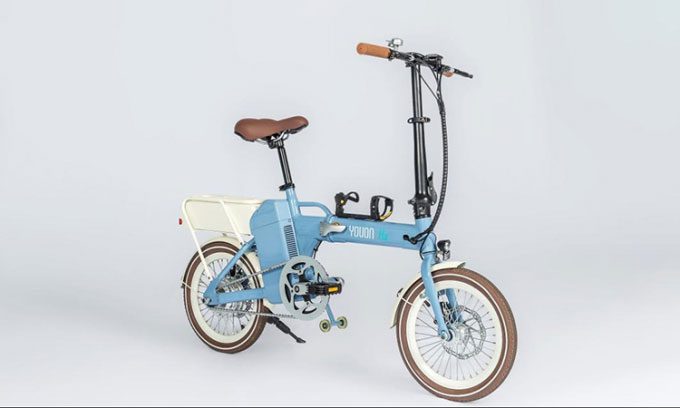An improved prototype of a folding bicycle powered by hydrogen has officially rolled out in Changzhou, Jiangsu Province.
This bicycle resembles conventional folding bikes but is equipped with a hydrogen fuel cell and a low-pressure hydrogen storage device. The fuel cell generates energy to power the bike after its proton exchange membrane receives hydrogen from the storage device.

The newly launched hydrogen bicycle prototype from Youon Technology. (Photo: Xinhua)
Compared to conventional electric bicycles that use lithium batteries, hydrogen fuel cells offer several advantages, including a longer lifespan and a more environmentally friendly operation, as they only produce water during use.
According to a statement from developer Youon Technology, based in Changzhou, the new hydrogen bicycle will provide power based on speed and will stop supplying additional power once a speed of 24 km/h is reached.
The company added that the first batch of hydrogen bicycles will be mass-produced by the end of March and aims to achieve an annual production capacity of 200,000 units by 2025.
China has ambitious plans to promote the development of the hydrogen energy sector. By 2025, the country expects to have around 50,000 vehicles powered by hydrogen fuel cells, and the annual hydrogen output from renewable energy sources is projected to reach between 100,000 to 200,000 tons, according to a plan jointly announced by the National Development and Reform Commission and the National Energy Administration last March.
Earlier this year, China also launched the world’s first hydrogen-powered urban train in Chengdu, Sichuan Province. Developed by the Changchun Railway and Chengdu Railway companies, the vehicle utilizes core technology from the Fuxing bullet train, achieving a maximum speed of 160 km/h and integrating a “hydrogen energy” system that provides a strong and sustainable power source, capable of reaching a range of 600 km per refueling.


















































